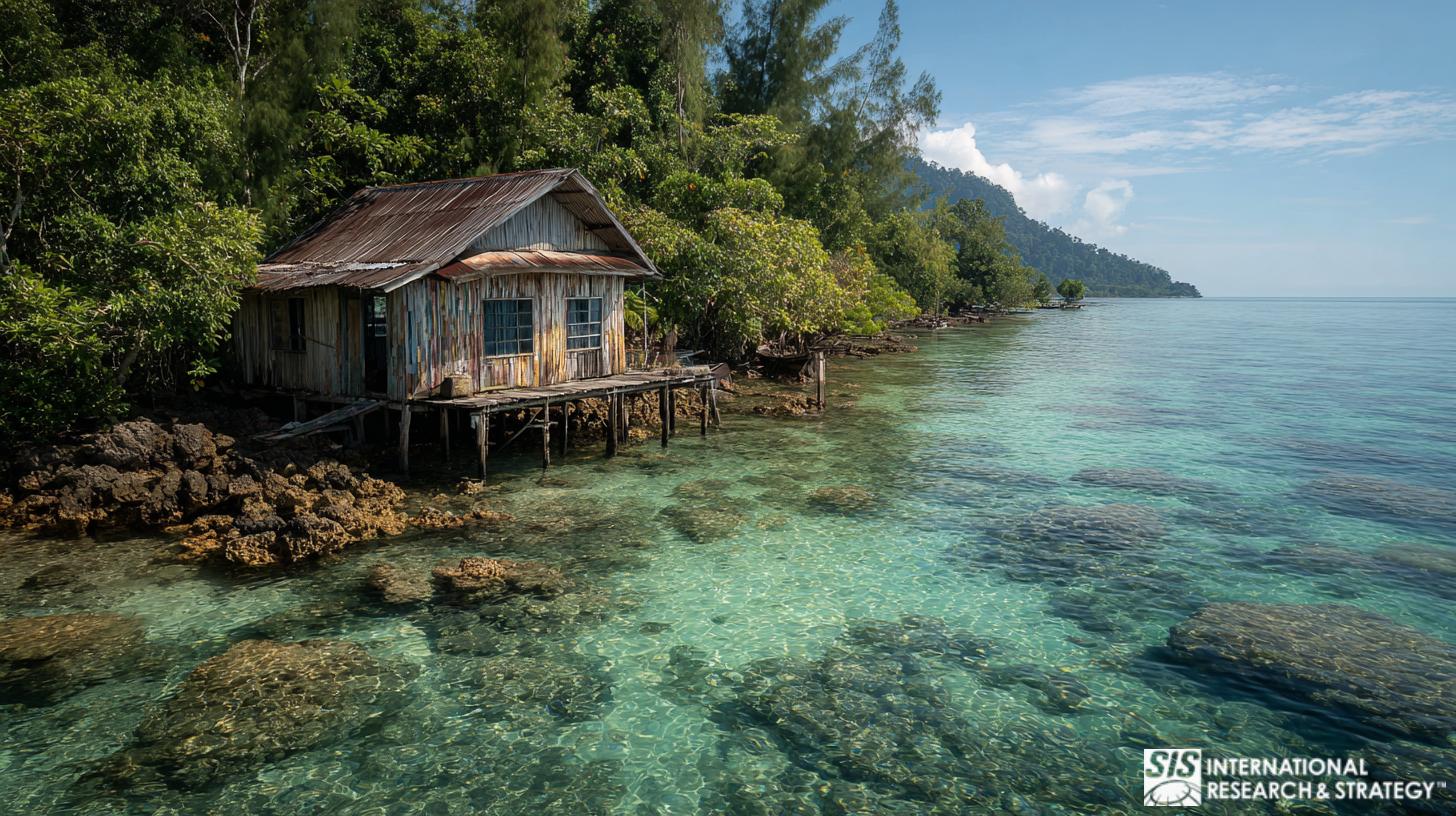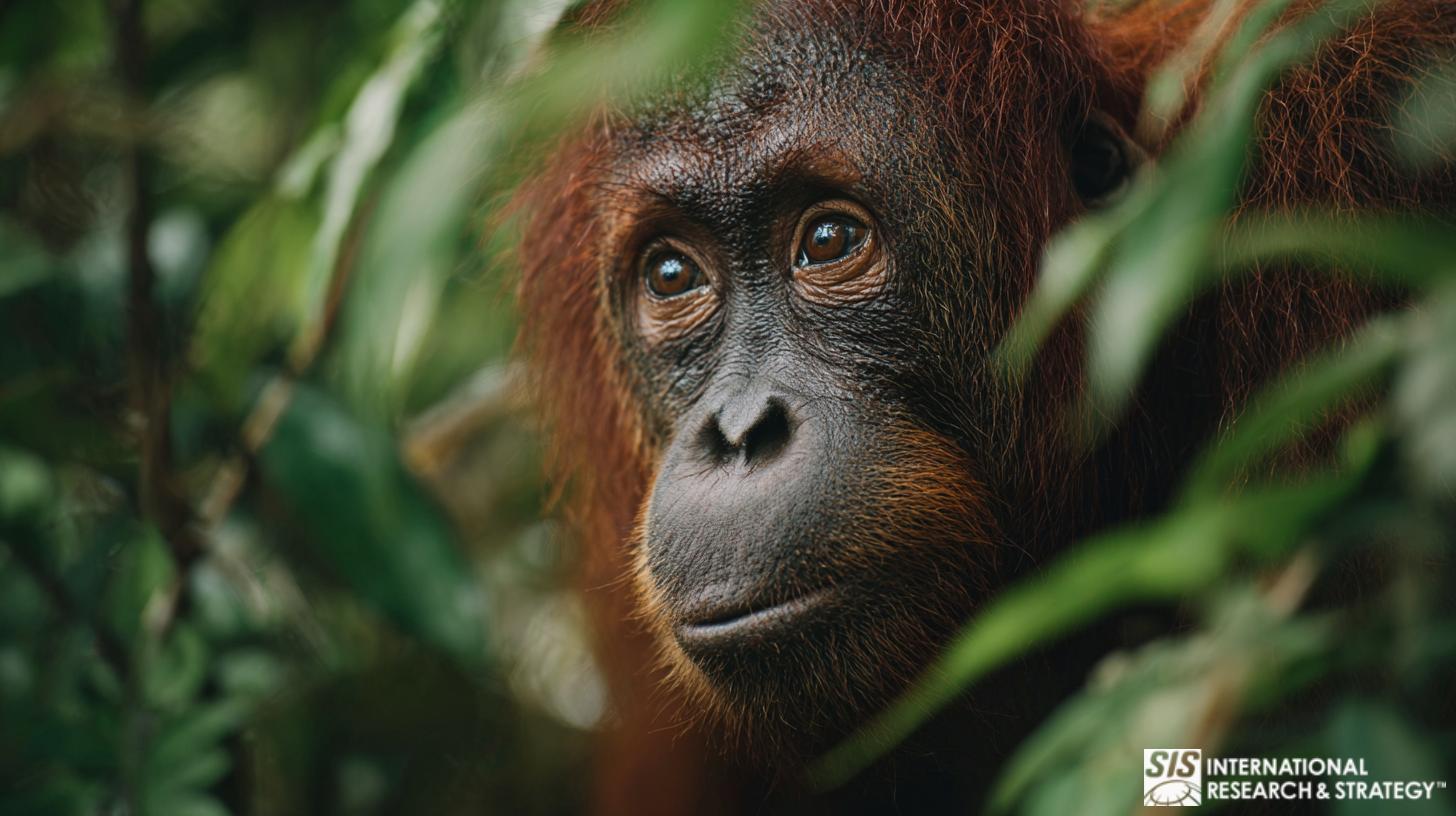Marktforschung in Borneo

Borneo ist die größte Insel Asiens und die drittgrößte der Welt. Sie liegt in Südostasien in der Nähe von Malaysia. Ihre Strände und Regenwälder sind bekannt. Drei südostasiatische Staaten besetzen die Insel: Brunei und Malaysia liegen im Norden und Indonesien im Süden. Brunei ist einer der kleinsten, aber reichsten Staaten der Welt mit einem hohen Lebensstandard. Das malaysische Borneo ist als Ost-Malaysia bekannt. Das indonesische Borneo ist als Kalimantan bekannt.
Table of Contents
Was ist Marktforschung in Borneo?
Marktforschung in Borneo untersucht ein breites Spektrum an Kulturen und Wirtschaftsaktivitäten, da sich Indonesien, Malaysia und Brunei die Insel teilen. Die Forschung konzentriert sich auf das Verständnis des Verbraucherverhaltens in verschiedenen Bevölkerungsgruppen, das von lokalen Industrien wie Landwirtschaft, Tourismus und Forstwirtschaft beeinflusst wird.
Wichtige Aspekte:
- Wirtschaftliche Landschaft: Borneo ist reich an natürlichen Ressourcen wie Palmöl, Holz und Artenvielfalt, die Markttrends prägen. Die einzigartige kulturelle Vielfalt der Region beeinflusst die Vorlieben und Kaufentscheidungen der Verbraucher.
- Methoden: Um Daten zu Verbrauchergewohnheiten, Markenbekanntheit und -präferenzen zu sammeln, werden sowohl qualitative (Fokusgruppen, Interviews) als auch quantitative (Umfragen) Methoden eingesetzt, insbesondere in städtischen Zentren wie Kota Kinabalu und Kuching.
- Herausforderungen: Um effektive Marktforschung betreiben zu können, müssen kulturelle Unterschiede und geografische Barrieren bewältigt werden, die den Zugang zur ländlichen Bevölkerung erschweren können. Auch regulatorische Fragen im Zusammenhang mit natürlichen Ressourcen erschweren die Forschungslandschaft.
- Vorteile: Mithilfe von Marktforschung können Unternehmen neue Trends in der Landwirtschaft und im Ökotourismus erkennen und gezielte Marketingstrategien entwickeln, die bei lokalen Verbrauchern verschiedener demografischer Gruppen Anklang finden.
Warum ist Borneo wichtig?
Borneo ist eines der am besten geschützten Gebiete der Welt. Seine Wälder sind vielfältig und können mehr Einkommen generieren als die Holzindustrie. Derzeit arbeitet ein Biotech-Unternehmen im malaysischen Borneo an der Schaffung einer neuen Bioökonomie, die auf Wissen statt auf Ressourcennutzung basiert.
Key Market Drivers and Strategic Entry Points in Borneo
| Market Segment / Region | Core Driver and Economy | Strategic Opportunity and Research Focus |
|---|---|---|
| Natürliche Ressourcen | Historically dominated by **palm oil** and timber. Significant pressure to shift toward **sustainable development** and forest preservation. | Investment in **sustainable agriculture**, biotechnology, and financing development that supports rainforest conservation and minimizes fire risk. |
| Digitalization & Retail | Younger consumers (under 35) are rapidly shifting to **online buying**, a trend expected to become permanent. | Focus research on e-commerce logistics, brand awareness creation via digital platforms, and understanding the gap between consumer desire for branded goods and actual uptake due to pricing. |
| Malaysian Borneo (East Malaysia) | Benefits from Malaysia’s solid infrastructure, educated workforce, and high quality of life. | Ideal entry point for businesses requiring **stable infrastructure** and a highly skilled local employee base (e.g., advanced manufacturing or services). |
| Indonesian Borneo (Kalimantan) | Access to Indonesia’s vast population, growing middle class, trade agreements, and investment incentives. | High-volume market strategy focusing on consumer goods, low labor costs, and leveraging regional trade agreements for scale. |
| Operational Challenges | Challenging terrain (swampy/mountainous) and high cultural diversity across three nations (Brunei, Malaysia, Indonesia). | Market research must navigate **geographic barriers** and requires tailored, culturally sensitive methodologies to reach rural or remote populations effectively. |
Städte und Regionen in Borneo
Samarinda, liegt an den Ufern des Mahakam-Flusses, ist die bevölkerungsreichste Stadt der Insel und die Hauptstadt von Ostkalimantan, einer indonesischen Provinz.
Banjarmasin is the second-biggest city and part of the South Kalimantan province. It’s on a delta island near the spot where the Barito and the Martapura Rivers meet.
Kuching Ist die drittgrößte Stadt der Insel und die bevölkerungsreichste Stadt im malaysischen Bundesstaat Sarawak. Sie liegt am Ufer des Sarawak-Flusses und hat eine Fläche von 166 Quadratmeilen.
Markt-Trends
Öko-Unternehmen können florieren, wenn die Insel weiterhin ihre Wälder schützt. Sie hat sich für den Schutz der Borneo-Orang-Utans eingesetzt. Kampagnen, die die Öffentlichkeit über die Bedeutung des Schutzes dieser Tiere aufklären, sind ebenfalls hilfreich. Tatsächlich hat die Insel eine Fatwa (islamisches religiöses Verbot) gegen den illegalen Handel mit diesen Affen erlassen. Es ist die erste Fatwa überhaupt, die zum Schutz bedrohter Arten erlassen wurde. Die Insel ist außerdem Heimat einiger tropischer Wälder mit großer Artenvielfalt. Dieser Vorteil kann für Investoren im Ökotourismus ein weiterer Segen sein.
Häufige Waldbrände sind weiterhin ein Problem. In vielen Teilen der Welt spielen solche Brände eine wichtige Rolle für das Waldökosystem. Das gilt jedoch nicht für tropische Regenwälder. In jedem Fall kommt es selten vor, dass tropische Regenwälder aufgrund von Feuchtigkeit brennen. Dennoch brennen die Wälder Borneos aufgrund schlechter Praktiken. Das Land braucht Investoren, um die Entwicklung zu finanzieren, die die Regenwälder erhalten kann.
Auch der Artenschutz ist ein erfreulicher Trend. Wie bereits erwähnt, gibt es auf der Insel in den Hochlandwäldern große Orang-Utan-Populationen. Der Verlust des Lebensraums bedroht auch Sunda-Nebelparder und das Sumatra-Nashorn. Darüber hinaus setzt der Verlust der Wälder Borneas große Mengen Kohlendioxid frei, was eine weitere Bedrohung für die Arten darstellt.
Schlüsselindustrien

Mitte der 1990er Jahre erlebte der Ölpalmenanbau in Borneo einen Aufschwung. Heute ist Malaysia der weltweit größte Palmölproduzent. 1960 baute das Land 60.000 Hektar Ölpalmen an, 2001 waren es bereits drei Millionen Hektar. Ein Drittel der Ölpalmenplantagen liegt in Sabah im Nordosten des Landes. Sabah bietet das ideale Klima für den Anbau der Pflanze.
Sowohl Malaysia als auch Indonesien wollen ihre Holzplantagen ausweiten. Doch sowohl die Ölpalmen- als auch die Holzindustrie bringen die Insel in Schwierigkeiten. Landwirte und Holzfäller haben Borneos Wälder gerodet, zerstückelt und zerstört. Ölpalmen- und Zellstoffplantagen bedrohen die Ökologie der Insel.
Die Abholzung der Wälder begann Mitte des letzten Jahrhunderts. Es begann mit der Anlage von Kautschukplantagen, die jedoch nur begrenzte Auswirkungen hatten. Die Abholzung nahm in den 1970er Jahren zu und nahm in den 1980er Jahren zu. In dieser Zeit zerstörte Malaysia seine Wälder auf dem Festland. Unterdessen verschenkte der ehemalige indonesische Machthaber Suharto große Waldflächen. Die meisten dieser Flächen gingen an Armeegeneräle, um politische Bindungen zu festigen. Diese Aktion führte in den 1980er Jahren zu einer noch stärkeren Abholzung der Wälder. Die Insel steht nun unter globaler Waldbeobachtung, da sie versucht, ihre Waldbedeckung wieder aufzubauen.
Verbraucherbasis
In Borneo klafft aufgrund der höheren Preise eine Lücke zwischen den Wünschen der Verbraucher und der tatsächlichen Nachfrage nach Markenprodukten. Auch Menschen unter 35 sind aufgrund der jüngsten Pandemie auf Online-Käufe umgestiegen. Forscher gehen davon aus, dass sich dieser Wandel zu einem dauerhaften Phänomen entwickeln wird, da viele Borneo-Bewohner auch nach der Rückkehr zur Normalität weiterhin digitale Plattformen nutzen.
Gründe, Ihr Geschäft in Borneo auszubauen
Möchten Sie in den malaysischen Staaten geschäftlich tätig werden? Malaysia ist eines der stärksten Länder im asiatisch-pazifischen Raum. Es verfügt über eine solide Infrastruktur, eine gut ausgebildete Belegschaft und einen erschwinglichen, hochwertigen Lebensstandard.
Die indonesische Seite bietet Ihnen Zugang zu Handelsabkommen und Investitionsanreizen. Ein weiterer Vorteil Indonesiens ist seine enorme Bevölkerungszahl. Die Mittelschicht wächst und die Arbeitskosten sind niedrig.
Brunei ist wie Malaysia ein stabiles Land mit einer günstigen Steuerpolitik. Weitere Pluspunkte sind die starke Öl- und Gasindustrie sowie die hervorragende regionale Anbindung.
Die Insel Borneo ist außerdem von großer Artenvielfalt geprägt und beheimatet über 1.400 Tierarten. Allerdings gibt es auch einige Probleme, wie beispielsweise das Gelände, das oft sumpfig oder bergig ist. Dennoch bietet die Insel viel Potenzial für das Wachstum und die Aufrechterhaltung profitabler Geschäftsvorhaben.
Unser Standort in New York
11 E 22nd Street, Floor 2, New York, NY 10010 T: +1(212) 505-6805
Über SIS International
SIS International bietet quantitative, qualitative und strategische Forschung an. Wir liefern Daten, Tools, Strategien, Berichte und Erkenntnisse zur Entscheidungsfindung. Wir führen auch Interviews, Umfragen, Fokusgruppen und andere Methoden und Ansätze der Marktforschung durch. Kontakt für Ihr nächstes Marktforschungsprojekt.

